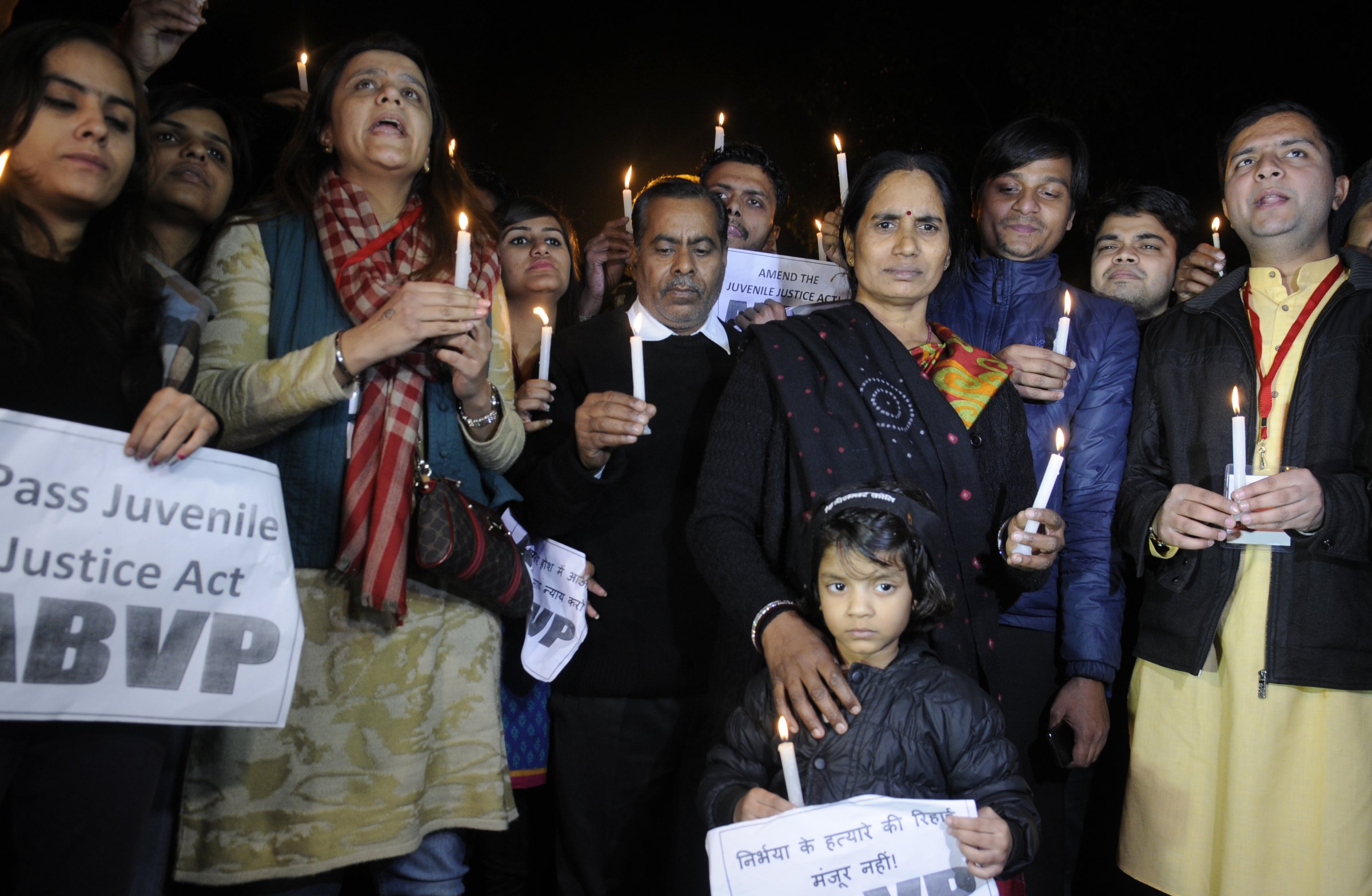
India on Tuesday passed a bill effectively allowing juvenile criminals aged 16 years or over to be tried as adults in the case of “heinous crimes” crimes such as murder and rape.
The Juvenile Justice Bill was ratified by the country’s upper house of Parliament, or Rajya Sabha, after the lower house did so in May, the BBC reported.
It will now have to be signed by the country’s President to become a law, an act widely considered a mere formality. The new law replaces the existing system under which convicts under the age of 18 are sent to a correctional facility for a maximum of three years.
It was the release from such a facility of the youngest rapist in the internationally infamous 2012 New Delhi gang-rape case — when 23-year-old medical student Jyoti Singh was brutally assaulted by six men and subsequently died — that significantly increased the pressure on the government to amend the law.
Singh’s parents, who said they were “satisfied” at the bill’s passing, were at the forefront of protests demanding harsher punishment for the young man who was 17 at the time of the rape. The new law will not apply to him, however, having been passed after his release.
“I am sad that my daughter did not get justice,” Singh’s mother Asha Devi told the BBC.
The bill has also encountered criticism, with many lamenting it as a knee-jerk reaction.
“We have to realize that a legal system cannot and does not stand on emotion. It has to stand on reason,” lawmaker Vandana Chavan said in Parliament on Tuesday, according to the Indian Express. Chavan cited studies contradicting the assumption that minors who perpetrate rapes and murders are as mature as adults.
“There has been an argument that if you are old enough to rape, you are old enough to be hanged and I feel this is absolutely wrong,” she said.
More Must-Reads from TIME
- Why Biden Dropped Out
- Ukraine’s Plan to Survive Trump
- The Rise of a New Kind of Parenting Guru
- The Chaos and Commotion of the RNC in Photos
- Why We All Have a Stake in Twisters’ Success
- 8 Eating Habits That Actually Improve Your Sleep
- Welcome to the Noah Lyles Olympics
- Get Our Paris Olympics Newsletter in Your Inbox
Write to Rishi Iyengar at rishi.iyengar@timeasia.com